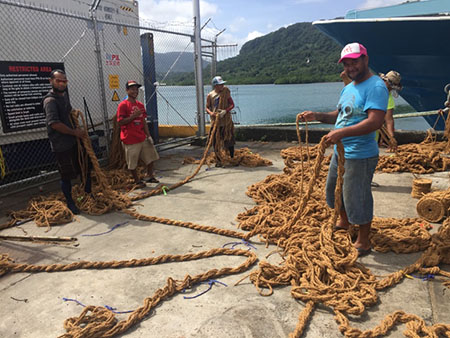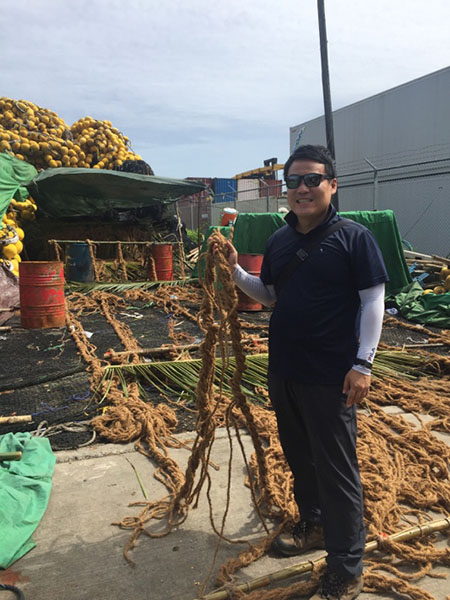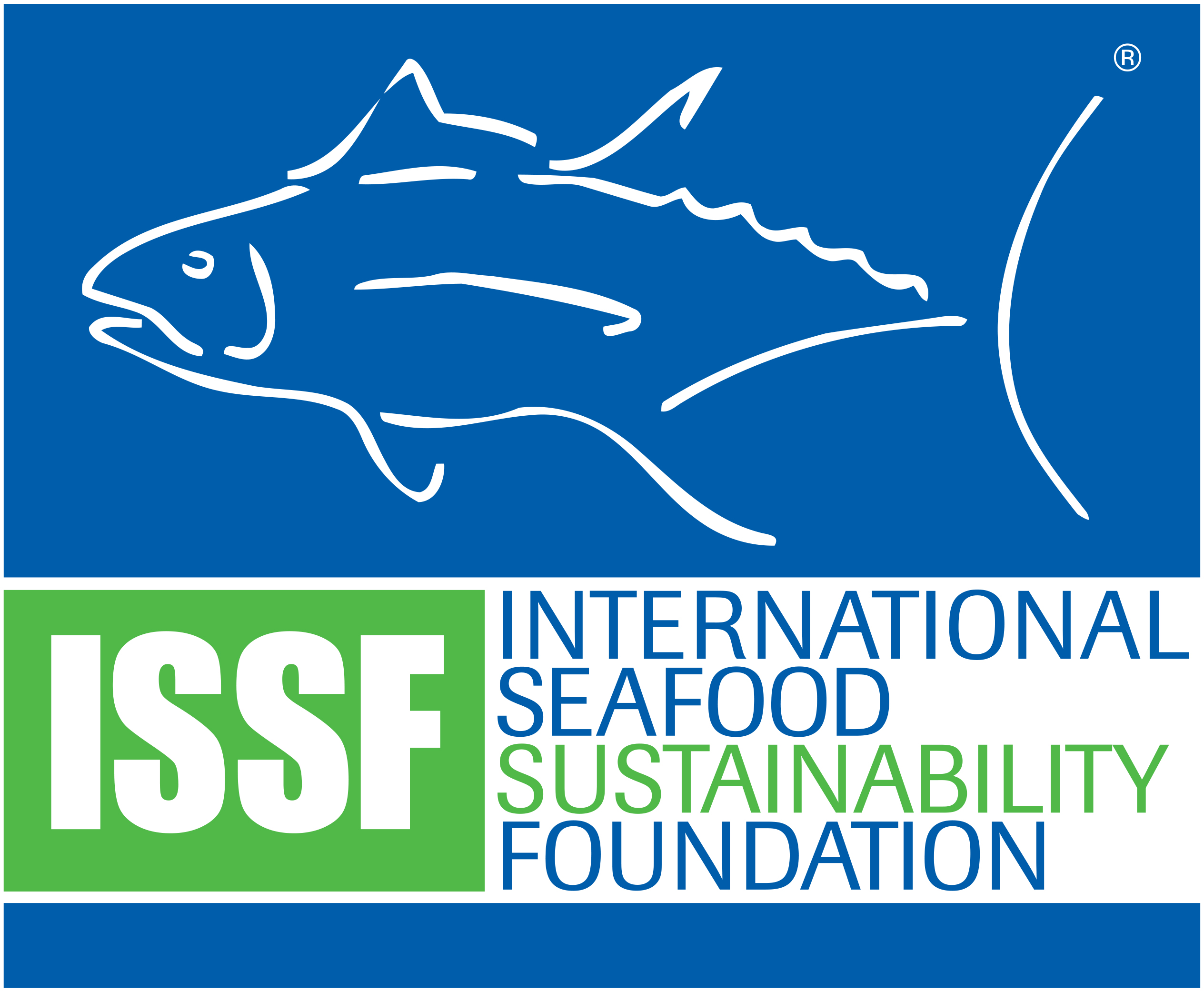Introducing biodegradable FADs in tuna fisheries in the Western Pacific Ocean
ISSF and Common Oceans ABNJ Tuna Project extending testing of experimental fish aggregating devices (FADs) using less plastic
24 June 2019
The Common Oceans ABNJ Tuna Project has been working closely with the International Seafood Sustainability Foundation (ISSF) to accelerate the use of biodegradable materials in fish aggregating devices (FADs). This initiative addresses some of the challenges facing tuna fisheries by implementing best practice solutions to reduce the amount of plastic materials used to construct fishing devices, in an effort to achieve sustainable fisheries practices and biodiversity conservation.
Abandoned and lost FADs can end up stranded in coasts, and sometimes in vulnerable ecosystems such as coral reefs. Other impacts include marine animals getting caught in submerged netting, and the accumulation of plastics at sea. Finding alternatives to existing non-biodegradable materials, applying good practices on how to avoid abandoned and lost fishing gear, and collecting non-utilized fishing gears, could prevent these issues and make FAD-fishing more sustainable.
 |
 |
| Discussions on biodegradable FAD prototypes.© Gala Moreno/ISSF |
Having completed a series of experiments to test biodegradable materials in controlled conditions, selected materials were tested at sea. Pilot tests of 100 biodegradable FADs during real fishing conditions helped advancing potential difficulties for large scale deployments in the Indian Ocean. Following the pilot, 1000 experimental FADs were deployed by EU and Korean purse seine fleets in the Indian Ocean, and in September 2019, another 800 will be deployed in collaboration with the Ghanaian purse seine and pole and line fleets that operates in the Eastern Atlantic Ocean.
Building on the successes from the first two pilot regions, a decision was made to continue these efforts in the western Pacific Ocean, and to define a strategy on how test the use of biodegradable materials with the fleets operating in this specific area.
"Testing potential materials in real-world situations is, of course, critical to our work to optimize the design of biodegradable FADs", said Dr. Gala Moreno, fisheries scientist and ISSF research consultant. "Testing these devices in as many ocean regions and fleets as poosible is equally critical to encouraging global adoption and implementation of biodegradable FAD structures".
In January 2019, two workshops were held, in Pohnpei (Federated States of Micronesia) and in Port Moresby (Papua New Guinea), to ascertain the specific situation in the western Pacific Ocean, discuss the essential features of a productive FAD and develop a protocol for a possible pilot study. At the workshop in Pohnpei, attendees were comprised scientific staff from the National Oceanic Research Management Authority of the Federated States of Micronesia, representatives from three purse seine companies and a staff member from the Western and Central Pacific Fisheries Commission. They were all very participative and shared their FAD fishing experiences, discussed potential strategies, but also their concerns as well as potential actions to help testing biodegaradable FADs and implement good practices. The attendees of the first workshop in Port Moresby included representatives from the fishing industry association and the government. This meeting was focused on the impacts of FADs, and how to move forward with new materials and FAD structures. Fishers and fishing companies are mainly based in the Philippines and will be targeted in June 2019 for more technical discussions.
 |
 |
| Biodegradable FAD prototype made of coconut fiber by Dongwon. © Gala Moreno/ISSF |
Next on the agenda is to continue to build momentum and create awareness of the impacts of FADs. Following the same strategy as for the Indian and Atlantic Ocean, two workshops on biodegradable designs in Philippines and Marshall Islands, as well as a pilot, will be conducted before launching a large-scale deployment of experimental FADs adapted to the Western Pacific Ocean.
More details about the workshop outcomes can be found in the workshop report available here.
The Common Oceans ABNJ Tuna Project is funded by the Global Environment Facility and implemented by the Food and Agriculture Organization of the United Nations. The Project harnesses the efforts of a large and diverse array of partners including the five tuna regional fisheries management organizations, governments, intergovernmental organizations, non-governmental organizations and private sector with the aim to achieve responsible, efficient and sustainable tuna production and biodiversity conservation in the areas beyond national jurisdiction.
ISSF is a global coalition of scientists, the tuna industry and World Wildlife Fund, promoting science-based initiatives for the long-term conservation and sustainable use of tuna stocks, reducing bycatch and promoting ecosystem health. Helping global tuna fisheries meet sustainability criteria to achieve the Marine Stewardship Council certification standard — without conditions — is ISSF’s ultimate objective. In 2019, ISSF celebrated a “Decade of Discovery” as the organization completed its tenth year of scientific research, advocacy and industry engagement. To learn more, visit https://iss-foundation.org/, and follow ISSF on Twitter, Facebook and Instagram.
For further information, please contact:
- Mr Alejandro Anganuzzi, Global Coordinator for the Common Oceans Tuna Project | [email protected]
- Ms Gala Moreno, ISSF scientist | [email protected]



